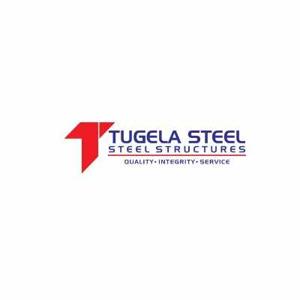The Evolution of Aviation Storage Solutions
The aviation industry has always demanded precision, durability, and adaptability in its infrastructure. As aircraft technology advances, the need for specialized storage solutions has grown exponentially. An aviation hangar manufacturer plays a pivotal role in meeting these demands, crafting structures that protect valuable assets while ensuring operational efficiency. These manufacturers have evolved from producing simple shelters to designing sophisticated facilities that accommodate everything from small private planes to massive commercial jets. The shift toward modern materials and innovative designs has transformed hangars into more than just storage spaces—they are now integral to the aviation ecosystem, supporting maintenance, safety, and scalability.
Historically, hangars were rudimentary, often constructed from wood or basic metal frameworks. However, the rise of commercial aviation and the increasing size of aircraft necessitated stronger, more resilient structures. Today, manufacturers leverage advanced engineering to create hangars that withstand extreme weather, optimize space, and comply with strict regulatory standards. This evolution reflects a broader trend in the construction industry, where durability and functionality are paramount. The focus on sustainability and energy efficiency has further pushed manufacturers to innovate, integrating eco-friendly materials and smart technologies into their designs.
The Role of Steel in Modern Hangars
When it comes to constructing robust and versatile hangars, commercial steel structures have become the gold standard. Steel’s strength-to-weight ratio makes it ideal for creating large, open spaces without the need for excessive internal supports. This clear-span design is crucial for accommodating wide-bodied aircraft, allowing unobstructed movement for maintenance crews and equipment. Steel’s durability ensures that hangars can withstand harsh environmental conditions, from high winds to heavy snow loads, making it a preferred choice for aviation facilities worldwide.
Beyond structural integrity, steel offers flexibility in design. Manufacturers can customize hangars to meet specific client needs, whether for private aviation, commercial airlines, or military applications. The material’s versatility allows for the integration of advanced features like insulated panels, energy-efficient roofing, and large, automated door systems. These customizations enhance operational efficiency while reducing long-term maintenance costs. Additionally, steel’s recyclability aligns with the growing emphasis on sustainable construction, making it an environmentally responsible choice for modern aviation hangars.
Design Innovations Driving the Industry
The role of an aviation hangar manufacturer extends beyond basic construction. Modern hangars are marvels of engineering, incorporating cutting-edge technologies to meet the diverse needs of the aviation sector. One key innovation is the use of modular designs, which allow for rapid assembly and scalability. These prefabricated structures can be erected quickly, minimizing downtime for airports and aviation businesses. Modular hangars are particularly valuable in remote locations or during rapid expansions, where traditional construction methods may be impractical.
Another significant advancement is the integration of smart technologies. Hangars are now equipped with automated climate control systems, advanced security features, and energy-efficient lighting. These technologies not only enhance the functionality of the hangar but also reduce operational costs. For instance, automated door systems, designed to accommodate large aircraft, improve workflow efficiency by reducing the time needed to move planes in and out. Manufacturers are also incorporating renewable energy solutions, such as solar panels, to power hangar operations, reflecting the industry’s commitment to sustainability.
Meeting Diverse Aviation Needs
The versatility of commercial steel structures allows aviation hangar manufacturers to cater to a wide range of clients. For private aviation enthusiasts, smaller hangars provide secure storage for single-engine planes or corporate jets. These structures are often designed with aesthetic appeal in mind, blending seamlessly with private airfields or estates. For commercial airlines, larger hangars are essential for housing wide-body aircraft and facilitating complex maintenance tasks. These facilities require expansive clear spans, robust flooring, and specialized equipment integration to support high-traffic operations.
Military applications demand even greater customization. Hangars for defense purposes must meet stringent security and durability standards, often incorporating reinforced roofing or blast-resistant features. Manufacturers work closely with clients to ensure compliance with regulations while addressing unique operational requirements. This adaptability highlights the critical role of an aviation hangar manufacturer in supporting the diverse needs of the global aviation industry.
The Future of Hangar Manufacturing
As the aviation sector continues to grow, the demand for innovative hangar solutions will only increase. Manufacturers are exploring new materials and construction techniques to enhance durability and efficiency. For example, advancements in lightweight alloys and composite materials could further improve the performance of commercial steel structures, reducing construction costs without compromising strength. Additionally, the integration of artificial intelligence and IoT (Internet of Things) technologies is poised to revolutionize hangar operations, enabling real-time monitoring of structural integrity and environmental conditions.
Sustainability will remain a key focus. Aviation hangar manufacturers are increasingly adopting green building practices, such as using recycled materials and designing energy-efficient structures. These efforts align with global initiatives to reduce the carbon footprint of the aviation industry. Furthermore, as urban air mobility and drone technology gain traction, manufacturers will need to develop compact, specialized hangars to accommodate these emerging forms of aviation.
Why Choose Expert Manufacturers
Selecting the right aviation hangar manufacturer is critical to ensuring a facility meets both current and future needs. Experienced manufacturers offer end-to-end services, from design and engineering to fabrication and installation. Their expertise ensures that hangars are compliant with aviation regulations, such as those set by the FAA, while meeting client-specific requirements. By leveraging commercial steel structures, these manufacturers deliver durable, cost-effective solutions that stand the test of time.
Collaboration is at the heart of the process. Manufacturers work closely with clients to understand their operational needs, budget constraints, and site conditions. This partnership ensures that the final structure is tailored to its intended purpose, whether it’s a small private hangar or a sprawling commercial facility. The ability to customize every aspect, from door systems to insulation, makes these manufacturers indispensable partners in the aviation industry.



Write a comment ...